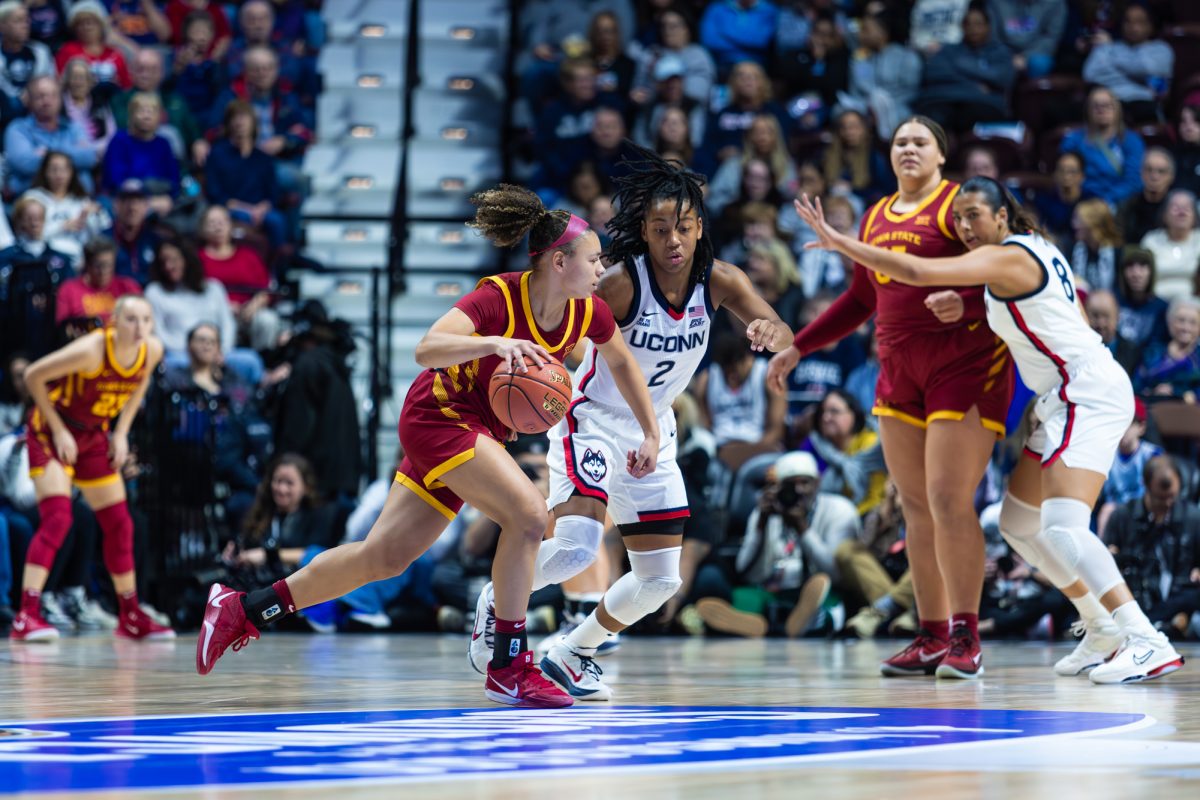MILLER: Vick’s case illuminates flaws in animal rights’ laws
August 22, 2007
I’m sure that at the end of last year’s NFL season Michael Vick had no idea the trouble he’d be in right before the start of this year’s pro football season.
Vick’s agreeing to a plea bargain in regard to the federal charges of dogfighting have sparked a nationwide debate over the activity – I won’t dare to think this could be called a sport – of dogfighting and the implications it has for our culture at large.
Dogfighting dates back to the Roman Empire, where after cross-breeding with European breeds, dog fights were held at the Colosseum for the public’s entertainment. The practice continued to grow, and dogfighting arrived in America shortly before the start of the Civil War. It was in the pursuit of a better fighting dog that the American Pit Bull Terrier was bred into existence.
The involvement of Vick has focused public attention on dogfighting as never before, and animal rights’ groups are moving fast to educate the public about it. The Humane Society of the United States estimates that nearly 250,000 dogs are still being used in dogfighting rings across the United States. The dogs are forced to fight until exhaustion or death, with fights commonly lasting between one and two hours.
The idea that a person who had achieved so much could be capable of such a repulsive act of wanton violence raises serious questions about the morals and ideologies that Americans support.
As an athlete, Michael Vick was expected to be in peak physical condition, a paragon of the human form, a testament to muscle, tendon and sweat. Vick was an idol for millions of overweight, jersey-wearing, fantasy-football-playing men to cheer for and scream at. But to find such depravity below the surface brings the entire system into question. Is it worth having star athletes who are sociopaths?
This is not to single Vick out. In the NFL alone, there are three prior cases involving animal cruelty: Jonathan Babineaux, LeShon Johnson and Thomas Hamner have all been charged with various forms of it. It’s possible to pull the scope back even further, away from animal cruelty and to the mentality of professional athletes in general.
From the drug, alcohol and gun convictions and arrests to fights, affairs and generally immoral behavior, when did professional athletes become amateur human beings? I didn’t start this editorial with the intent of quoting the Bible, but Matthew 16:26 is a very fitting verse. The King James Version says, “For what is man profited, if he shall gain the whole world and lose his own soul?”
No one wishes to avoid heavy-handed Christian morality more than I, but there is a serious issue at hand here. What does it say about our society when some of its most popular and richest members can lead lives lacking any moral or humanistic concern and still receive a huge paycheck for nightly performing feats of strength?
As Mark Kriegel of Fox Sports points out in his column, the professional sports leagues are not known for the stringent punishments and demanding moral standards.
However, there is hope. The NFL’s current commissioner, Roger Goodell, has only held the post for two years, yet he has shown already that he is willing to enact disciplinary measures regardless of criminal convictions. Goodell’s rewriting of the rules has begun to repair the NFL’s image as a league that accepts bad-boy behavior as part of the package deal with superstar athletes.
It’s difficult to say at this point in time what the end result of all this will be. PETA has requested that “cruelty to animals” be listed as an offense in NFL’s code of personal conduct, but they also oppose leather footballs and shoes, so it’s unclear how seriously its request will be viewed. But then again, sea changes often start out small and this may be the event that finally galvanizes the public into passing stricter animal rights’ laws.
– Quincy Miller is a senior in English from Altoona.






